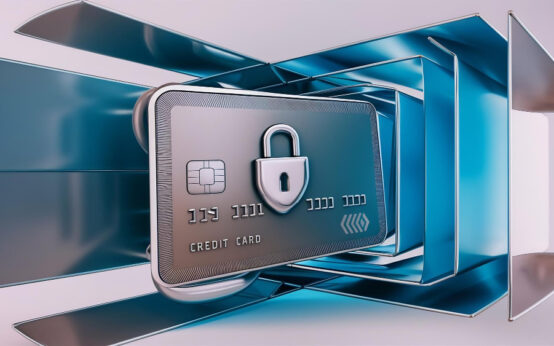
When it comes to managing your finances, the comparison between credit cards and debit cards is always relevant. Both provide convenience, but understanding their main differences can guide you in making more informed decisions.
Deciding between credit and debit cards depends on your financial habits and personal goals. Credit cards offer rewards and help improve your credit score, while debit cards assist in controlling spending. Understanding the benefits of each helps you choose what best fits your needs.
Credit cards vs debit cards: key differences
When considering credit cards versus debit cards, the differences may appear minor, but they significantly influence the way you handle and allocate your money. Credit cards provide a credit line, allowing you to obtain funds on credit for expenses.
This allows you to buy items immediately and settle the payment afterward, but you’ll need to monitor interest rates if you carry a balance. Debit cards, nonetheless, draw funds straight from your checking balance, so you can only spend the money available in your balance.
For example, imagine buying a $100 item. Using a credit card, you’re able to complete the purchase immediately and pay later. However, with a debit card, the $100 is immediately deducted from your balance.
This makes debit cards a safer choice if you’re worried about overspending, since you can’t go beyond your balance. However, credit cards can offer perks, like rewards points or cash back, which debit cards generally don’t provide.
Advantages of using credit cards
For starters, they often come with rewards programs. Whether it’s cashback, travel points, or discounts, credit cards can give you extra benefits for spending that you’re already doing. Imagine getting a percentage back on every grocery store trip or flight purchase. It’s like getting paid to spend.
Additionally, credit cards can assist in improving your credit score. By making timely payments and avoiding holding a balance, you demonstrate to lenders that it is possible to control debt responsibly. This opens doors for bigger loans, like a mortgage, when you’re ready.
Of course, you’ll need to be mindful of interest rates, but if you settle your amount due every month, you won’t need to be concerned about that. So, if you’re aiming to earn rewards and build credit, credit cards could be a wise tool in your financial toolkit.
Benefits of debit cards: convenience and control
Debit cards are an excellent tool for keeping track of your expenses and steering clear of unnecessary debt. Because they withdraw funds straight from your checking balance, they assist you in adhering to a budget. With no unexpected charges or interest fees at the end of the month, It revolves around spending within your means.
One of the biggest benefits is control. For instance, if your account has $500, that’s the maximum you can spend using your debit card. This could prove to be a major benefit if you’re trying to resist the urge to overspend. Additionally, You are not required to worry about remembering to settle a balance, as you would with credit cards.
Another great thing is the low or no fees associated with most debit cards. In contrast to credit cards, debit cards don’t come at elevated interest rates or annual fees. In short, they provide a straightforward and efficient way to handle your financial matters without the complications.
Financial implications
Credit cards can assist in enhancing your credit when used responsibly. By making timely payments and keeping your balance low, you show lenders that you are trustworthy. This can open up better financial opportunities, like loans with lower interest rates.
On the flip side, debit cards don’t impact your credit score, but they allow you to oversee your cash flow directly. Using a debit card, you are able to only spend the funds available in your account, making it an effective way to prevent overspending.
This means no surprise bills at the end of the month. However, using debit cards exclusively doesn’t help you build a credit history, which can be a downside if you ever need to apply for credit.
Security and fraud protection: which card offers more protection?
Credit cards frequently come with more efficient fraud protection. If someone steals your card information and makes unauthorized purchases, you’re usually not liable for those charges, provided you notify the theft promptly.
Plus, many credit cards provide purchase protection, meaning if something you buy is damaged or stolen, you can be reimbursed.
Debit cards, nonetheless, can carry more risk. Since they withdraw funds straight from your checking balance, if someone gains availability of your card information, they could potentially deplete your account.
Although debit cards do offer fraud protection, it might not be as extensive as credit cards. Additionally, recovering stolen funds from a debit card can take longer, leaving you without availability of your funds until the issue is resolved.
Spending limits: flexibility vs budgeting control
With credit cards, you have a preset limit, which could be higher than your bank balance. This gives you the flexibility to make larger purchases, like buying a new phone or booking a vacation, even if you lack the full amount within your balance right now. But, you’ll need to be careful not to overspend.
Debit cards, in contrast, link your spending straight to your available balance. This may assist you in following your financial plan, as it’s more difficult to exceed your limit. However, although debit cards offer greater control, they don’t provide the same level of spending flexibility that credit cards do.
In the end, whether you select credit cards vs debit cards relies on your expenditure patterns and economic objectives. Both have their benefits, so consider your needs carefully. If you need more money, check out some creative passive income ideas to increase your earnings and enjoy!



 Best credit cards secured: your path to a stronger credit history <p style='text-transform:none; line-height:20px !important; font-size:16px; font-weight:normal; color:#424242; margin: 0px; margin-top:10px;'>They offer a smart way to show lenders you’re serious about managing your finances.</p>
Best credit cards secured: your path to a stronger credit history <p style='text-transform:none; line-height:20px !important; font-size:16px; font-weight:normal; color:#424242; margin: 0px; margin-top:10px;'>They offer a smart way to show lenders you’re serious about managing your finances.</p>  The best credit cards for lounge access: your key to premium airport comfort <p style='text-transform:none; line-height:20px !important; font-size:16px; font-weight:normal; color:#424242; margin: 0px; margin-top:10px;'>With these cards, you have exclusive access to lounges, offering comfort while you wait for your flight.</p>
The best credit cards for lounge access: your key to premium airport comfort <p style='text-transform:none; line-height:20px !important; font-size:16px; font-weight:normal; color:#424242; margin: 0px; margin-top:10px;'>With these cards, you have exclusive access to lounges, offering comfort while you wait for your flight.</p>  Safe, simple, and fun: discover the best debit cards for kids <p style='text-transform:none; line-height:20px !important; font-size:16px; font-weight:normal; color:#424242; margin: 0px; margin-top:10px;'>These cards offer the flexibility and convenience that both parents and kids need.</p>
Safe, simple, and fun: discover the best debit cards for kids <p style='text-transform:none; line-height:20px !important; font-size:16px; font-weight:normal; color:#424242; margin: 0px; margin-top:10px;'>These cards offer the flexibility and convenience that both parents and kids need.</p>